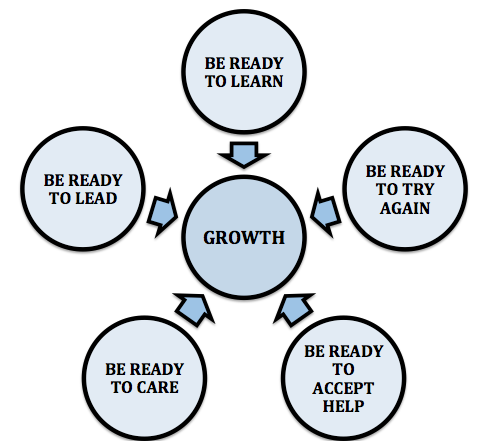The “Hamlin bucks” program is a reward system used in Hamlin to increase positive behavior. Here's how it works:
-
- Earning: Students earn “bucks” for displaying positive behaviors, meeting academic goals, or contributing to the school community in a meaningful way.
-
-
-
-
Growth Mindset
Developing a Growth Mindset in elementary schools is crucial for young learners' success. Let's explore the key principles and strategies:
-
- Open Dialogue and Reasoning
- Encourage an open dialogue in the classroom. Allow children to express their opinions and challenge yours.
- This fosters reasoning, problem-solving, and critical thinking skills.
- Language of Growth Mindset
- Use terms like **determination**, **perseverance**, and **growth mindset** openly.
- Teach students that effort and learning from failure lead to growth.
-
-
- Mutual Respect
- Model mutual respect for adults and children alike.
- Show that everyone's ideas and contributions are valued.
-
-
- Resilience and Adaptability
- Demonstrate a resilient attitude when things go wrong.
- Adapt and learn from challenges, expressing how you overcome them.
- Children will mirror this behavior and develop their own resilience.
-
-
- Positive Environment
- Create a positive classroom culture.
- Encourage a willingness to succeed and overcome obstacles.
- Strengthen students' sense of character.
-
-
- Role of Teachers
- Teacers act as guides, like soccer coaches on the sidelines.
- Use teaching strategies to help students achieve academic success.
Remember, growth mindset principles extend beyond education. They empower individuals to persevere, be resilient, and learn from setbacks throughout life. Dr. Carol Dweck's research on growth mindset is a valuable resource for deeper understanding¹.

Richard A. Shields Elementary PBIS Growth Mindset School Rules
What are some examples of Growth Mindset?
Here are some examples of a **growth mindset**:
1. **Embracing Challenges**:
- Individuals with a growth mindset see challenges as opportunities for growth.
- Instead of avoiding difficult tasks, they actively seek them out.
- Example: A student excitedly takes on a challenging math problem, knowing that effort and persistence will lead to improvement.
2. **Persistence and Effort**:
- People with a growth mindset understand that effort is essential for success.
- They don't give up easily; they keep trying even when faced with setbacks.
- Example: A musician practices a difficult piece repeatedly, believing that practice will lead to mastery.
3. **Learning from Failure**:
- A growth mindset encourages learning from mistakes.
- Failures are seen as opportunities to learn and improve.
- Example: After receiving feedback on an essay, a student revises it diligently, aiming to enhance their writing skills.
4. **Inspiration by Others' Success**:
- Instead of feeling threatened by others' achievements, those with a growth mindset find inspiration.
- They believe that they can learn from successful people.
- Example: A young athlete admires a professional player's skills and works hard to improve their own game.
5. **Adopting New Strategies**:
- A growth mindset involves flexibility.
- When faced with obstacles, individuals explore different approaches.
- Example: A scientist modifies their research methods after initial experiments yield unexpected results.
6. **Feedback as a Tool for Growth**:
- Constructive feedback is valued by those with a growth mindset.
- They use it to refine their skills and knowledge.
- Example: A teacher appreciates feedback from students and adjusts their teaching methods accordingly.
Remember, cultivating a growth mindset is a lifelong journey. Encouraging these behaviors in children helps them develop resilience, adaptability, and a love for learning!



